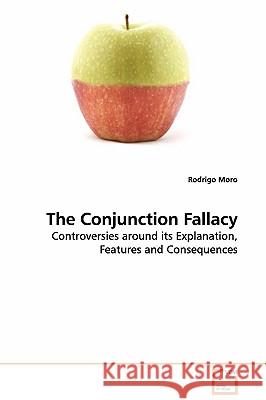The Conjunction Fallacy - Controversies around its Explanation, Features and Consequences » książka
The Conjunction Fallacy - Controversies around its Explanation, Features and Consequences
ISBN-13: 9783639111132 / Angielski / Miękka / 2008 / 88 str.
In 1983 A. Tversky and D. Kahneman showed that people sometimes tend to believe that a conjunction of events (e.g., It rains and it is cold) is more likely to occur than one of the events at stake (e.g., It rains). This phenomenon is called "conjunction fallacy" as it involves a logical mistake. Researchers in psychology and philosophy have engaged in important controversies around the phenomenon. This work explores three of these debates. First, it addresses the issue of the nature of the conjunction fallacy. Is the conjunction fallacy mainly due to a misunderstanding of the problem by participants or is it mainly due to a genuine reasoning bias? Second, it explores empirical controversies about the factors that elicit or help to avoid the fallacy. Third, it deals with the impact of the conjunction fallacy studies on the issue of human rationality. Does the fact that most people commit the conjunction fallacy imply that human beings are in some contexts irrational? This book should help shed some light on these debates and should be of interest of psychologists, philosophers or anyone interested in the tricks of the human mind.











